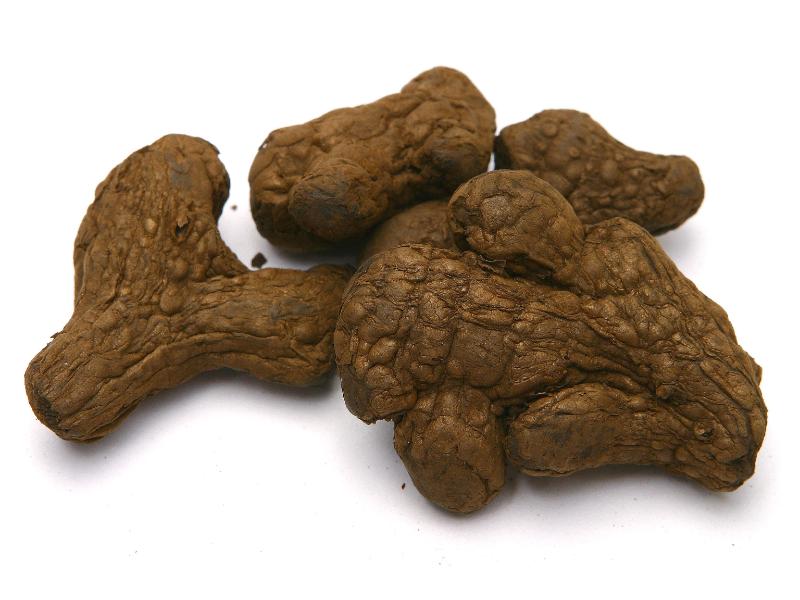Back to search result
Previous
Next

Search in medicinals
Zingiberis Rhizoma Praeparatum
Blast-fried ginger
炮姜 〔炮薑〕 pào jiāng

Alternate Chinese names: 黑姜 hēi jiāng; 炮干姜 pào gān jiāng; 炮姜炭 pào jiāng tàn; 干姜炭 gān jiāng tàn; 姜炭 jiāng tàn
Kingdom: Plant
Origin in PRC Pharmacopoeia: Zingiber officinale (Willd.) Rosc. (PRC Pharmacopoeia)
Origin in unofficial sources: Zingiber officinale (Willd.) Rosc.
Use: Medicinal
Category: Blood-stanching agents / Channel-warming blood-stanching agents
Properties: Bitter, astringent, slightly acrid; warm.
Channel entry: Liver and spleen channels.
Actions and indications:
- Warms the channels/menses and stanches bleeding: Vacuity cold bleeding patterns, such as vomiting of blood (blood ejection), bloody stool, and flooding and spotting.
- Warms the center, relieves pain, and checks diarrhea: Treats abdominal pain, vomiting, diarrhea. While pào jiāng is derived from the same plant (ginger) as Shēng jiāng (生姜 Zingiberis Rhizoma Recens, fresh ginger) and Gān jiāng (干姜 Zingiberis Rhizoma, dried ginger), they differ in their preparation methods and medicinal nature. All three products warm the center and disperse cold, but shēng jiāng specifically disperses exterior cold and is very effective for treating vomiting, while gān jiāng tends to dispel interior cold. Pào jiāng penetrates the blood aspect, so it is good at warming the channels/menses to stanch bleeding. Note also Shēng jiāng pí (生姜皮 Zingiberis Rhizomatis Cortex, ginger skin), which is acrid and cold, and disinhibits water and disperses swelling to treat water swelling and purulent sores.
Dosage and method: Oral: 3–9 g in decoctions.
Notes: This is dried ginger that is stir-fried over a high heat until black on the outside.
See: Gān jiāng (干姜 Zingiberis Rhizoma, dried ginger)
Back to search result Previous Next